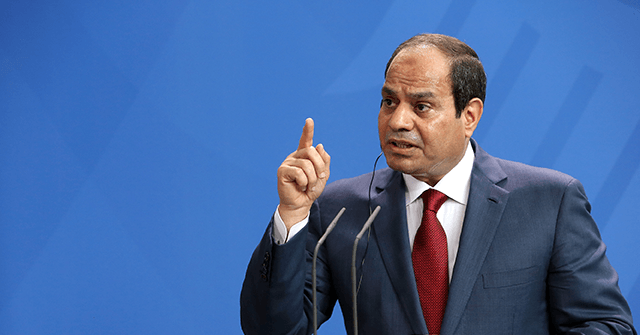The Outlaw *BANNED*
PREMIER
A democrat's paradise. All we need is for Nancy to get her hair done (check!) and more of our tax dollars to throw at this (check!). Solved.

Both sheriff's deputies now listed in stable condition
Los Angeles police officials have announced a $100,000 reward for information that leads them to the gunman who ambushed two sheriff’s deputies in Compton over the weekend.
Both victims -- a 24-year-old man and a 31-year-old mother of a 6-year-old -- were sworn in just over a year ago, according to the L.A. Times report.
Shortly after the shooting, police were faced with protests at the entrance to the hospital where the injured deputies were being treated. A series of tweets from the LA County Sheriffs describes how demonstrators were “blocking the entrance & exit of the HOSPITAL EMERGENCY ROOM” and yelling, "We hope they die."

Compton ambush: $100G reward offered for information on gunman as manhunt for suspect continues
Los Angeles police officials have announced a $100,000 reward for information that leads them to the gunman who ambushed two sheriff’s deputies in Compton.www.foxnews.com
Great post pewpew...I've pretty much stayed out of posting in Off Topic while a handful of you go back n forth in various threads. This hits too close to home though. With friends and family working both the Thin Blue/Red Line, the actions of the shooter..and the "peaceful protesters" in front of St Frances Med Center is absolutely beyond reprehensible.
I've heard the radio traffic the female deputy puts out after being shot in the face and it's difficult to listen to without a swarm of emotions coming over you. If you've seen the pictures of her..face full of blood..applying a TQ to her partner and still trying to stay in the fight to protect herself and her partner, then you know how bad-ass she is. 14 months on the job. I don't know her prior experience other than she's a mom. She could be the mom of YOUR children. Or YOUR daughter..the mother of YOUR grandkids. I don't know anything either of the 24yr old male deputy other than he's been on the job only a short time as well. Someone I know had recently worked with him at another station and said he's a nice guy. Only been on a short time and just recently transferred to Compton Station.
Where are all the social justice warriors condemning this act of violence? Where's LeBron James at to speak out about this?
I saw a side-by-side pic of LeBron being carried off the court with "cramps"..and the female deputy full of blood tending to her wounded partner.
Who's the real hero and who's the one making millions that needs to be carried due to a cramp. Gimme a break.
My G03 GK played for over a week on a broken ankle because she thought it was just ongoing pain from a bad ankle sprain months earlier.
Will we see him put LASD on the back of his jersey or will he continue to run the names of convicted felons..I mean "heroes" like Jacob Blake instead?
Flame suit on..go ahead and say what you want..just like I won't change your opinions..you won't change mine. I'll give you a bit of background before you try and label me with anything. I'm over 40. Hispanic. Married w/ children. Blue collar. Registered Democrat my whole life. Though I'm finding it really hard to say that anymore. I'm Pro-choice. I'm VERY Pro-2A. I don't like paying taxes to fund people sitting at home on their asses collecting a check for work they didn't do. I find myself torn between both sides. But the Dems have done nothing to quell the violence in our society and pretty much condone looting, rioting, targeting police, etc. by these "peaceful protesters" with zero accountability for their lawlessness. This I find UNACCEPTABLE. Listening to friends and family out there on the Front Line and their stories shows our society has lost it's moral compass. There's plenty wrong with the Rep party as well. Don't get me wrong. We can save that for another day.
We teach our kids to be responsible for their own actions. To learn from what we've done to make their life good..so they can make their own lives good when they are older. To treat people fairly. That ALL LIVES MATTER. I know some of you won't agree with me..that's your choice..as it is ours to raise our kids with this mindset. Your actions have consequences. Work hard. Take care of gear..gear'll take care of you. Don't wait for someone to hand you something. If you want something, go out and WORK hard for it. Don't STEAL it. Nobody gave us anything. We worked for it. My wife took on a lot of debt in student loans to get thru school. We eventually paid it off.
In as much as I agree there are bad cops out there..there are also bad doctors, nurses, teachers, firefighters, coaches, and so on. They are in every profession. You can't single out an entire group based on the actions of a few. The same goes here for law enforcement.
Maybe it's time for a Blue Lives Matter thread..what say you Dom?
P.S. Sorry for the long rant..but it's been a long time coming. I could go on but I won't.
I've pretty much stayed out of posting in Off Topic while a handful of you go back n forth in various threads. This hits too close to home though. With friends and family working both the Thin Blue/Red Line, the actions of the shooter..and the "peaceful protesters" in front of St Frances Med Center is absolutely beyond reprehensible.
I've heard the radio traffic the female deputy puts out after being shot in the face and it's difficult to listen to without a swarm of emotions coming over you. If you've seen the pictures of her..face full of blood..applying a TQ to her partner and still trying to stay in the fight to protect herself and her partner, then you know how bad-ass she is. 14 months on the job. I don't know her prior experience other than she's a mom. She could be the mom of YOUR children. Or YOUR daughter..the mother of YOUR grandkids. I don't know anything either of the 24yr old male deputy other than he's been on the job only a short time as well. Someone I know had recently worked with him at another station and said he's a nice guy. Only been on a short time and just recently transferred to Compton Station.
Where are all the social justice warriors condemning this act of violence? Where's LeBron James at to speak out about this?
I saw a side-by-side pic of LeBron being carried off the court with "cramps"..and the female deputy full of blood tending to her wounded partner.
Who's the real hero and who's the one making millions that needs to be carried due to a cramp. Gimme a break.
My G03 GK played for over a week on a broken ankle because she thought it was just ongoing pain from a bad ankle sprain months earlier.
Will we see him put LASD on the back of his jersey or will he continue to run the names of convicted felons..I mean "heroes" like Jacob Blake instead?
Flame suit on..go ahead and say what you want..just like I won't change your opinions..you won't change mine. I'll give you a bit of background before you try and label me with anything. I'm over 40. Hispanic. Married w/ children. Blue collar. Registered Democrat my whole life. Though I'm finding it really hard to say that anymore. I'm Pro-choice. I'm VERY Pro-2A. I don't like paying taxes to fund people sitting at home on their asses collecting a check for work they didn't do. I find myself torn between both sides. But the Dems have done nothing to quell the violence in our society and pretty much condone looting, rioting, targeting police, etc. by these "peaceful protesters" with zero accountability for their lawlessness. This I find UNACCEPTABLE. Listening to friends and family out there on the Front Line and their stories shows our society has lost it's moral compass. There's plenty wrong with the Rep party as well. Don't get me wrong. We can save that for another day.
We teach our kids to be responsible for their own actions. To learn from what we've done to make their life good..so they can make their own lives good when they are older. To treat people fairly. That ALL LIVES MATTER. I know some of you won't agree with me..that's your choice..as it is ours to raise our kids with this mindset. Your actions have consequences. Work hard. Take care of gear..gear'll take care of you. Don't wait for someone to hand you something. If you want something, go out and WORK hard for it. Don't STEAL it. Nobody gave us anything. We worked for it. My wife took on a lot of debt in student loans to get thru school. We eventually paid it off.
In as much as I agree there are bad cops out there..there are also bad doctors, nurses, teachers, firefighters, coaches, and so on. They are in every profession. You can't single out an entire group based on the actions of a few. The same goes here for law enforcement.
Maybe it's time for a Blue Lives Matter thread..what say you Dom?
P.S. Sorry for the long rant..but it's been a long time coming. I could go on but I won't.
"I would just like people to think of me as a judge who did the best she could with whatever limited talent I had," Ginsburg said at an event at the University of California Hastings College of Law in 2011, "to keep our country true to what makes it a great nation and to make things a little better than they might have been if I hadn't been there."

Un-hitch Health Insurance from Healthcare and both from employment.
Looks like systemic racism.

We been stocking high for it.Happy Diwali, all you heathens!

FBI Director Patel, US lawmakers extend wishes on Diwali
Washington, Oct 20 (IANS) A leading member of the Donald Trump administration, along with prominent lawmakers from both the Democratic and Republican parties, have conveyed their wishes on the occasion of Diwali. Federal Bureau of Investigation (FBI) Director Kash Patel on Monday extended Diwali...www.indiatribune.com
